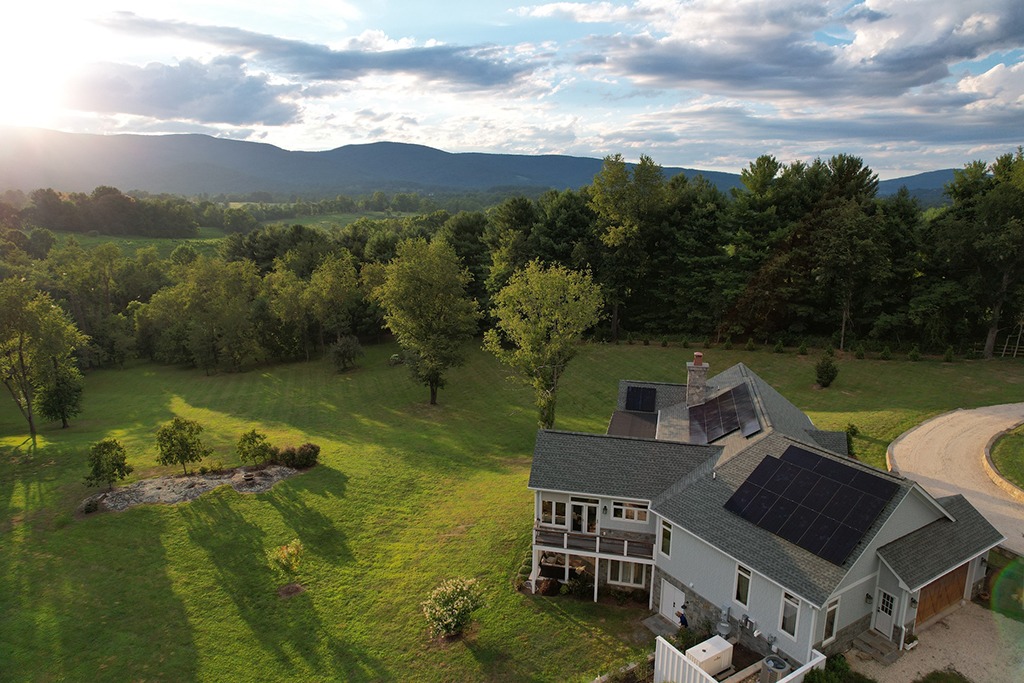How Long Does It Take to Install Residential Solar Panels?

In this post, we’ll discuss solar companies, solar panel installers, the time it takes to install residential solar panels, and other relevant subjects.
Switching to Residential Solar Panels Prince William County VA, is a wise investment, but many homeowners wonder how long the process takes. The timeline can vary based on permits, inspections, and installer availability. Understanding each step helps set clear expectations and avoid surprises along the way.
Step-by-Step Timeline for Solar Panel Installation
The solar process typically takes 1 to 3 months from your first call to flipping the switch. Each stage plays an important role in preparing your home for energy independence.
- Site Assessment (1–2 days)
- A professional will examine your property to examine the roof area, angle, and sun exposure before designing your personalized solar system.
- System Design (1–2 weeks)
- Engineers create a solar layout based on your roof, energy usage, and local guidelines before submitting it for approval.
Permitting and Paperwork Delays
Permits are a major factor in determining how quickly you can go solar. Solar companies must follow local laws, and waiting for approval can take time—especially in busy cities or states with high demand.
- Permit Approval (2–4 weeks)
- The timeline varies by city. Some approvals happen quickly, while others take longer due to building codes and electrical reviews.
- HOA or Zoning Review
- Getting approval might add extra time to your project if you live in a neighborhood with a homeowners association.
Solar Panel Installation Day: What to Expect
The good news is that after all clearances have been completed, the actual installation is quick. Most home solar systems take one to three days to install, depending on the system’s size and roof intricacy.
- Installation Time (1–3 days)
- The crew mounts racking, installs panels, and connects the inverter and wiring to your home’s electrical system.
- Minimal Disruption
- Installers typically work outside, so the process causes minimal disruption to your daily routine.
Final Inspections and Utility Connection
Before your solar system can go live, it must pass final inspections. After approval, your utility company will install a new meter and grant permission to operate (PTO).
- Local Inspection (3–7 days)
- City inspectors check the system to ensure it’s installed safely and meets building codes.
- Utility PTO (1–3 weeks)
- Once approved, the utility company flips the switch, and your solar system starts generating power.
Choosing the Right Solar Company
The solar company you choose plays a big role in how smoothly and quickly the process goes. Solar Company Fairfax County is knowledgeable, experienced, and responsive from the first meeting to the final activation.
- Experience and Certifications
- Look for companies with NABCEP-certified staff and a proven track record in your area.
- Clear Communication
- A good company keeps you updated throughout the process and answers questions promptly and clearly.
Questions to Ask a Solar Company
Before you sign a contract, ask key questions to ensure you understand what you’re getting and whether the company fits your needs and goals.
- What’s Included in the Quote?
- Ask if the quote covers equipment, labor, permits, inspections, and warranty coverage.
- How Long Will My Project Take?
- Request a timeline based on your area and property for a realistic schedule.
The Role of a Solar Panel Installer
Solar panel installers are the professionals who actually install the system on your roof. Their skill level can impact everything from efficiency to safety, so choose wisely.
- Proper Licensing and Training
- Always verify that your installer is licensed and trained in local codes and solar technology.
- Attention to Detail
- A careful installer ensures your system is secure, weatherproof, and optimally positioned for maximum sunlight.
Why Quality Installation Matters
Even the best solar panels won’t perform well if poorly installed. Quality installation helps your system last longer, perform better, and reduce the risk of future issues.
- Boosts System Efficiency
- A well-installed system will produce more electricity by maximizing panel angle and placement.
- Reduces Maintenance Needs
- Professional installation minimizes problems like leaks, loose wiring, or faulty connections.
How to Find a Trustworthy Solar Installer
Not all installers offer the same level of service. Research reviews, verify credentials, and ask about warranties to avoid issues down the road.
- Check Local Reviews
- Reviews from other homeowners in your area can reveal strengths or red flags about a specific installer.
- Ask About Warranty and Support
- Solar Panel Installer Fairfax County guarantees its services and gives labor and material warranties.
Red Flags to Watch for in Solar Installation
If something seems off during the sales or installation process, stepping back is okay. Rushing into a contract with the wrong company can cause long-term headaches.
- High-Pressure Sales Tactics
- Reputable companies give you time to think and offer written quotes without pushing you to sign on the spot.
- Unclear or Vague Contracts
- Always review terms, costs, timelines, and responsibilities in writing before committing.
How Weather and Season Can Affect Installation Time
Seasonal demand and weather conditions may speed up or slow down your project. Spring and summer are popular for installations, while winter may bring delays in colder regions.
- Busy Seasons Mean Longer Waits
- Solar companies are often busiest in late spring and early summer, which may delay the start of your project.
- Bad Weather Can Slow Things Down
- Rain, snow, or high winds can postpone installation for safety reasons.
Benefits of a Smooth Solar Installation
When everything runs on schedule, you enjoy a quicker return on your solar investment. The sooner your system is live, the faster you will save on electricity bills and reduce your carbon footprint.
- Start Saving Sooner
- Once your system is operational, you’ll see the benefits of lower monthly energy costs.
- Peace of Mind
- A smooth experience reduces stress and helps you feel confident in your solar decision.
Final Thoughts: Your Solar Journey Starts Now
Residential solar panel installation typically takes one to three months—but selecting the appropriate provider and technician can make all the difference. Knowing what to expect, asking the correct questions, and working with competent specialists will make the transition to sustainable energy go more smoothly and quickly.
- Plan for a Better Experience
- Starting early, especially before peak season, helps you avoid delays and enjoy quicker installation.
- Partner with the Right Experts
- Choose a solar company and installer who guide you every step of the way and treat your home with care.



